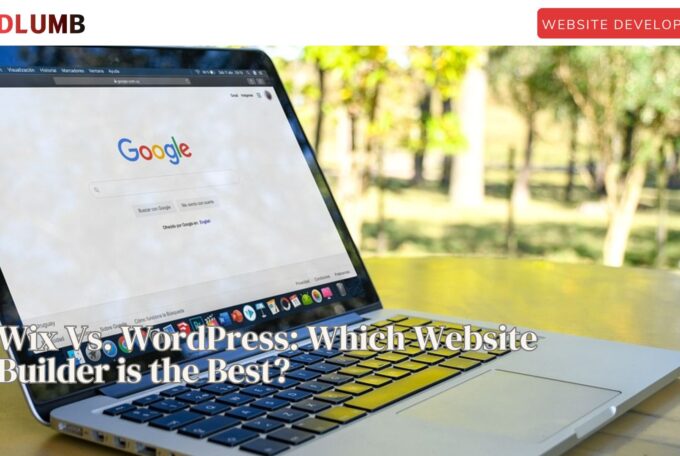Small business owners face a critical decision when establishing their online presence: selecting the right website builder. Many small businesses now have websites, yet many struggle to choose the best website builder among numerous options like Wix, Squarespace, and WordPress. The right choice can significantly impact a business’s online success, customer reach, and digital marketing effectiveness.
[su_list class=”story-highlight”]Key Takeaways
- Selecting the right website builder is crucial for small businesses, as it influences online visibility, customer reach, and overall digital marketing effectiveness.
- Leading website builders like Wix, Squarespace, and Shopify offer tailored strengths—such as e-commerce capabilities, design flexibility, and user support—catering to different business requirements and skill levels.
- When choosing a platform, businesses should consider current needs and future growth, prioritizing scalability, robust security, and regular updates to ensure long-term digital success.[/su_list]
Comparison Overview
| Platform | Best For | Key Features | Pricing (Monthly) | E-commerce Features | User Support |
| Wix | Small businesses need flexibility | 800+ customizable templates, AI design assistance, marketing tools, integrated payments | Basic: $17, Business: $29, Advanced: $36 | Core Plan ($29): Payment processing, product management | Email, Phone, 24/7 support |
| Squarespace | Creative professionals, design-focused businesses | Sophisticated design templates, social media integration, e-commerce tools | Basic: $17, Business: $22, Advanced: $36 | Basic Commerce ($29): Integrated shopping tools | 24/7 Email Support |
| Shopify | E-commerce-focused businesses | Comprehensive inventory management, multichannel selling, shipping tools | Not available in tiers listed here | Multiple gateways, inventory management, shipping integrations | 24/7 support |
| GoDaddy | Quick deployment, minimal complexity | SSL security, mobile-responsive design, essential marketing tools | Basic: $11.99, Business: $21.99, Advanced: $24.99 | Commerce Plan ($24.99): Complete store capabilities | 24/7 Expert Support |
| Weebly | Budget-friendly, beginner-friendly | Guided editor, app integrations, free plan option | Free Plan Available, Paid Plans Vary | Basic e-commerce features in the free tier | Limited, varies by plan |
Top Website Builders for Small Businesses
Leading website builders have evolved significantly to meet the diverse needs of small businesses in 2024. Each platform offers unique advantages for different business requirements and technical expertise levels.
Wix stands out as a versatile solution with over 800 customizable templates and an intuitive drag-and-drop interface. The platform excels in providing AI-powered design assistance and comprehensive marketing tools. Its enterprise-grade security and integrated payment systems make it particularly suitable for businesses requiring both content management and basic e-commerce capabilities.
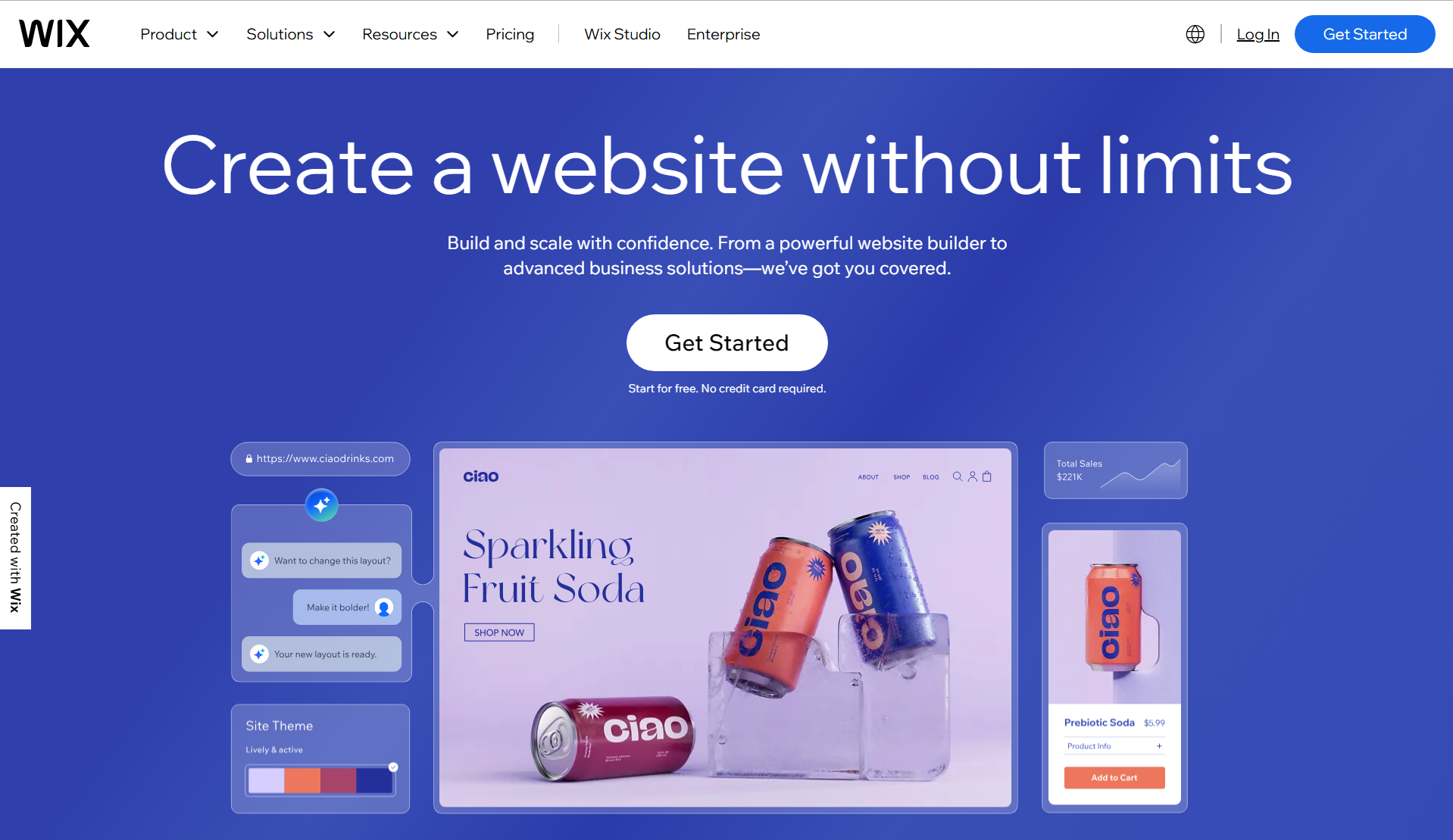
Squarespace distinguishes itself through sophisticated design templates and powerful visual tools. The platform offers seamless integration with social media platforms and robust e-commerce features. Its strength lies in creating visually striking websites for creative professionals and businesses prioritizing aesthetic appeal.
Shopify emerges as the premier choice for e-commerce-focused businesses. The platform provides comprehensive tools for:
- Inventory management and multichannel selling.
- Advanced shipping and tax calculations.
- Integrated payment processing with multiple gateway options.
GoDaddy delivers a streamlined website-building experience with 24/7 expert support. The platform integrates essential features like SSL security, mobile-responsive design, and marketing tools. Its simplified approach makes it ideal for businesses seeking quick deployment with minimal technical complexity.
Weebly offers a beginner-friendly approach with competitive pricing and essential features. The platform provides:
| Key Features | Benefit |
| Guided Editor | Simplified website creation |
| App Integration | Extended functionality |
| Free Plan Option | Risk-free starting point |
Each builder maintains specific strengths, whether in design flexibility, e-commerce capabilities, or user support. The choice ultimately depends on individual business requirements, technical expertise, and growth objectives.
Key Features to Look for in a Website Builder
Selecting an effective website builder requires careful evaluation of several critical features that can significantly impact a business’s online success. Understanding these key elements helps decision-makers choose platforms that align with their specific requirements.
Ease of Use
A well-designed website builder should offer an intuitive interface with clear navigation and readily accessible tools. The platform must provide drag-and-drop functionality and continuous autosaving capabilities, making it accessible for users with varying technical expertise levels.
Customizable Templates
The quality and variety of templates form the foundation of website design flexibility. Leading platforms offer:
- Full control over color schemes and typography.
- Extensive layout options and content blocks.
- Design frameworks for precise customization.
- Brand integration capabilities.

E-commerce Capabilities
Modern website builders must support robust e-commerce functionalities through:
| Feature | Business Benefit |
| Payment Gateways | Multiple payment options |
| Inventory Management | Streamlined operations |
| Shopping Cart | Enhanced user experience |
| Order Processing | Efficient sales handling |
SEO Tools
Search engine optimization capabilities are crucial for online visibility. Essential SEO features include customizable meta tags, XML sitemaps, and structured data markup support. Advanced platforms integrate with tools like Semrush for comprehensive keyword analysis and optimization guidance.
Mobile Responsiveness
With mobile traffic exceeding 52% of global website visits, responsive design is non-negotiable. Website builders should automatically optimize content for various screen sizes while maintaining functionality across all devices. This adaptation ensures a consistent user experience and supports improved search engine rankings.
Pricing Comparison of Top Website Builders
Understanding the cost structure of website builders enables businesses to make financially sound decisions that align with their digital objectives. A comprehensive analysis of pricing models reveals significant variations across platforms.
Free Plans
Several leading website builders offer zero-cost entry points with varying capabilities:
- Wix provides a free plan with 500MB of storage and basic features.
- GoDaddy offers a starter plan with unlimited pages.
- Weebly includes basic e-commerce features in its free tier.
Paid Plan Tiers
Premium plans deliver enhanced functionality with structured pricing tiers:
| Platform | Basic Plan | Business Plan | Advanced Plan |
| Wix | USD 17.00/mo | USD 29.00/mo | USD 36.00/mo |
| Squarespace | USD 17.00/mo | USD 22.00/mo | USD 36.00/mo |
| GoDaddy | USD 11.99/mo | USD 21.99/mo | USD 24.99/mo |
[/su_service]
[su_service title=”Info” icon=”icon: info-circle” icon_color=”#000″ size=”20″ class=”InfoBox”]
Each tier introduces progressively advanced features, with Basic plans typically offering custom domains and removing platform branding, while Business plans incorporate professional marketing tools and enhanced support options.
[/su_service]
E-commerce Plan Pricing
E-commerce functionality demands specialized pricing structures designed for online retail operations:
Specialized E-commerce Plans:
- Wix Core (USD 29.00/month): Includes payment processing and product management.
- Squarespace Basic Commerce (USD 29.00/month): Features integrated shopping tools.
- GoDaddy Commerce (USD 24.99/month): Offers complete online store capabilities.

Premium e-commerce solutions provide advanced features like inventory management, multiple payment gateways, and shipping integrations. The investment scales with business requirements, offering enhanced capabilities at each price point to support growing online operations.
Most platforms offer annual billing discounts, typically reducing monthly costs by 20-30% when paid yearly. Additionally, seasonal promotions can provide significant savings for businesses planning long-term commitments to their chosen platform.
How to Choose the Right Website Builder for Your Business
Making an informed decision about a website builder requires systematic evaluation of multiple factors that align with business objectives. A methodical approach ensures the selected platform supports both current needs and future growth potential.
Assess Your Needs and Goals
Businesses must first identify their primary website objectives. Key considerations include:
- Content management requirements.
- E-commerce functionality needs.
- Marketing integration capabilities.
- Budget constraints and ROI expectations.
Consider Your Technical Skills
Technical expertise significantly influences platform selection. The ideal website builder should match the organization’s technical capabilities while providing the necessary support features:
| Skill Level | Recommended Features |
| Beginner | Drag-and-drop interface, guided setup |
| Intermediate | Custom CSS access, API integration |
| Advanced |
Developer tools, complete customization
|
Evaluate Scalability
Platform scalability ensures long-term viability as businesses grow. Essential scalability factors include storage capacity, bandwidth allocation, and feature expandability. The selected platform should accommodate increased traffic, additional products, and enhanced functionality without requiring a complete website rebuild.
Read Reviews and Try Free Trials
Thorough platform evaluation through trials and reviews provides crucial insights into real-world performance. Organizations should:
- Utilize free trial periods to test core functionalities.
- Examine user reviews focusing on business-specific features.
- Assess customer support responsiveness.
- Evaluate platform reliability and uptime statistics.
The selection process should prioritize platforms offering comprehensive security features, including SSL certificates and regular security updates. Integration capabilities with existing business tools, such as CRM systems and marketing platforms, warrant careful consideration to ensure seamless operations.
[su_service title=”Important” icon=”icon: exclamation-triangle” icon_color=”#00ae27″ size=”20″ class=”ImportntBox”]
Website builders that provide constant updates and embrace innovation, particularly in AI-driven features, offer significant advantages for future-focused businesses. The platform’s ability to handle both physical and digital offerings becomes paramount for businesses with diverse revenue streams.
[/su_service]
Content management efficiency plays a vital role, particularly for organizations requiring frequent updates and dynamic content management. The selected platform should streamline content updates and facilitate marketing tasks efficiently, supporting a dynamic online presence while maintaining professional standards.
Which Website Builder is Right for Your Business?
Website builders have evolved significantly to meet diverse small business needs in 2024, with each platform offering unique advantages for specific business requirements. The comprehensive analysis of leading platforms like Wix, Squarespace, and Shopify reveals distinct strengths in areas such as design flexibility, e-commerce capabilities, and user support. These differences, combined with varied pricing structures and feature sets, enable small businesses to find solutions aligned with their specific goals and technical capabilities.
Small business owners must carefully evaluate their current needs while considering future growth potential when selecting a website builder. The right choice depends on multiple factors, including technical expertise, budget constraints, and specific business requirements such as e-commerce functionality or marketing tools. Success in the digital marketplace requires a platform that not only meets immediate needs but also supports business expansion through scalable features, reliable security, and continuous innovation.
Syed Haris Ali is a renowned web developer and designer at REDLUMB, specializing in front-end technologies, with a particular focus on WordPress. Holding a BS in Computer Science, he has successfully delivered over 50 websites across various sectors, providing tailored solutions to meet diverse client needs. With a keen eye for design and a passion for functionality, Haris creates engaging user experiences that elevate brands online.

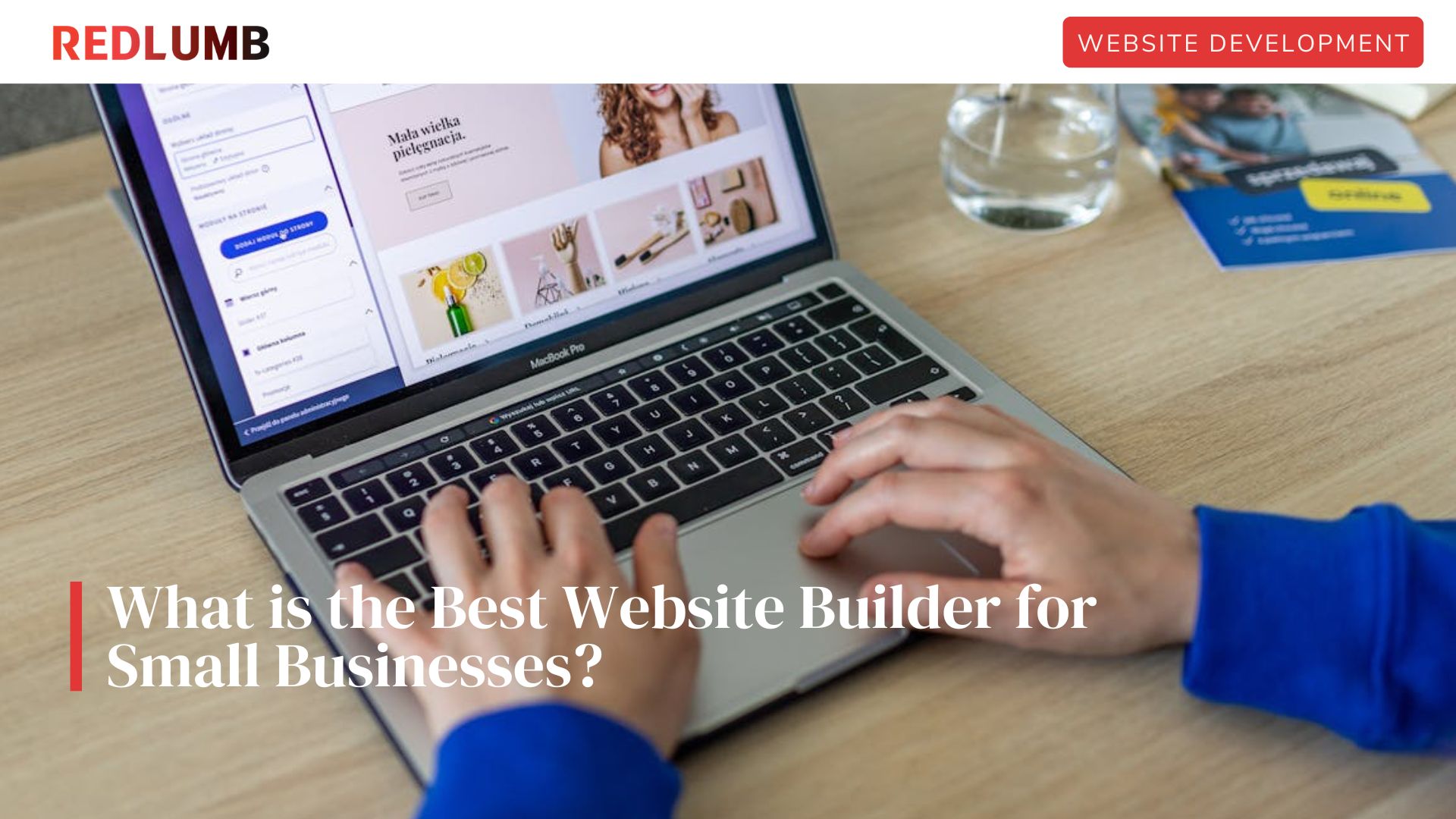
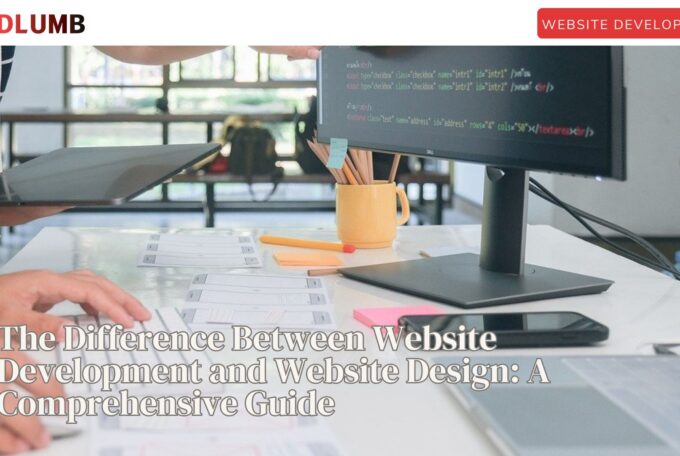
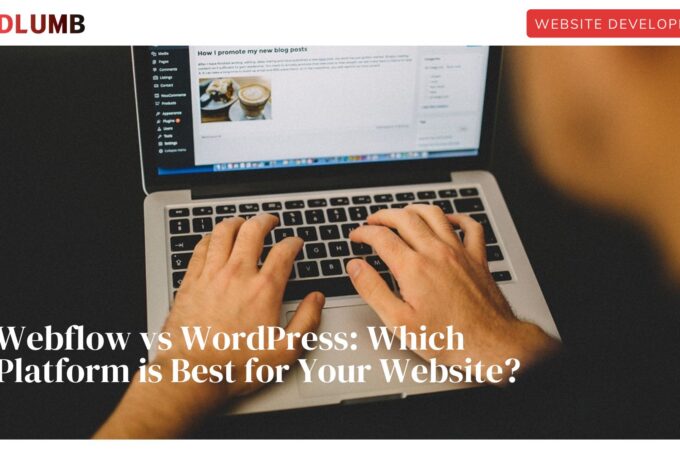
![How to Make Your Website Show Up on Google [All Steps]](https://redlumb.ae/wp-content/uploads/2024/11/REDLUMB-Template-6-680x456.jpg)
